In 5 cities (Boston, Los Angeles, New York, Oakland, DC) over 3 days (Mar 23, 24, and 25), developers, designers, researchers, artists, occupiers, and hackers gathered to analyze and visualize datasets related to the Occupy movement. At the various sites, teams of people worked on separate projects, with the goal of using free and open source tools to creatively present data pertinent to the Occupy movement and the issues it has raised. Hackathon participants created a range of exploratory visualizations, including artistic word clouds (#OccupyData Mural, State and Space), bubble charts, phrase nets, maps, tumblr blogs combining data and photos, and faceted data browsing tools. The sites remained in real-time communication throughout the Hackathon, networked via video chat, IRC, and collaborative documents.
Data sets
One major focus was the Occupy Research General Demographic and Political Participation Survey (ORGS), which aimed to gather information about the demographics of Occupiers as well as about various forms of civic and political participation in the Occupy movement. The survey was designed through a transparent and collaborative process that included Occupiers and researchers from across the globe.
The survey was conducted by the Occupy Research Network (http://occupyresearch.net), which includes academics, activists, students, community researchers, and others, with support from DataCenter (http://www.datacenter.org). A list of people involved in the ORGS survey is available at http://occupyresearch.wikispaces.com/surveys#People.
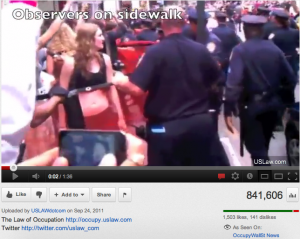
To explore questions about issues of interest to the movement, hackathon participants worked with publicly available data sets as well as social media data gathered by scraping information from sites like Twitter (State and Space), online news sources, and media sharing platforms like Youtube (Occupy Video as Data: Visualizing Temporal Narratives).
Hacked!
Faceted Browsing
Occupy Research has made the ORGS survey data available in many formats for analysis and remixing. In order to make the data accessible to more people who might be interested in exploring the survey’s findings, one group created a faceted navigation interface.
http://orgs-facet.tirl.org/exhibit.html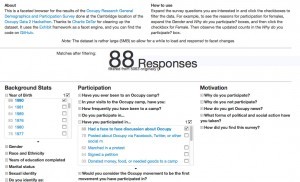
Text Mural
This mural draws from survey respondents’ answers to the question “If you participate in the Occupy movement, what TOP THREE concerns motivate you TO PARTICIPATE?” — the larger the word, the more it was used in people’s survey responses. This is a collaboration between Nadia Afghani and Gilad Lotan.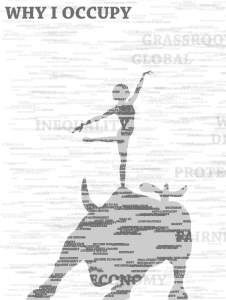
State and Space
Also blending text and imagery, this project uses the web service Topsy and a Ruby script to search for tweets that document police misconduct or benevolence, can be traced back to a specific officer, and are related to Occupy events. After cleaning the tweets of web noise, e.g. http://, the project visualizes the prominence of particular keywords associated with police misconduct. As a balancing counterpoint, the project team is also searching for keywords associated with positive instances of police behavior.
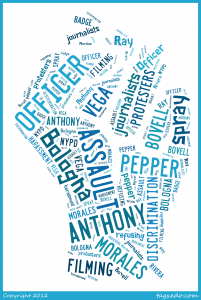
Visions of Occupy
This project seeks to creatively juxtapose the beliefs we have which inspire us to occupy, and visual traces of the physical occupations themselves.
Using data collected this winter by the Occupy Research General Survey (administered by OccupyResearch), we take the answer to question 42—”In just a few words, what are you trying to achieve with your participation in the Occupy movement”—and pair it with a Flickr photo tagged with the camp name that the same respondent mentions. This means that while the photo displayed and quote may be completely unrelated (both in source and in specific content), viewers are presented with locational context and imagery.
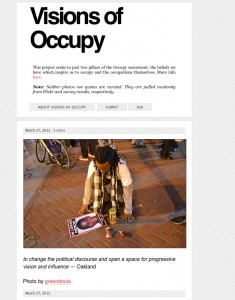
Displaying ORGS survey results by State (by quantile)
Map by Don Blair and Chris Schweidler, using GeoCommons.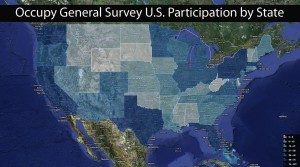
Exploring the Civic Anatomy of Occupy
According to the Occupy Research General Survey (ORGS), OWS sympathizers and participants are among the most civically engaged individuals of the U.S. population, they possess an active voting record, and tend to be involved in a wide range of organizations and civic actions. The ORGS allows us to explore some of the characteristics of the diverse “civic cultures” of online sympathizers who have brought broad support to OWS in the U.S.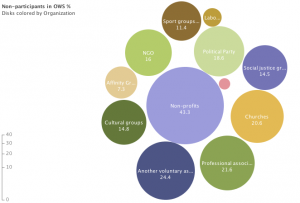
Visualizing “Phrase Nets” using Many Eyes
Also using Many Eyes, this is a visualization of answers to the question “What is your top reason for participating in the Occupy Movemment” in which the most commonly occuring terms appear larger.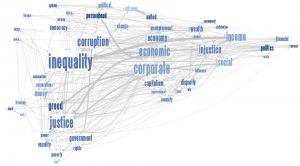
Overall the second #OccupyData hackathon was a success, with more participants than the first round, many creative explorations and demos of new data visualization possibilities, and a strong desire by participants to continue developing shared, distributed, free and open approaches to social movement based research.


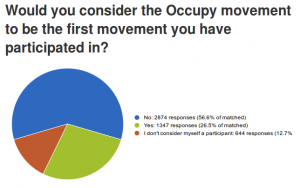

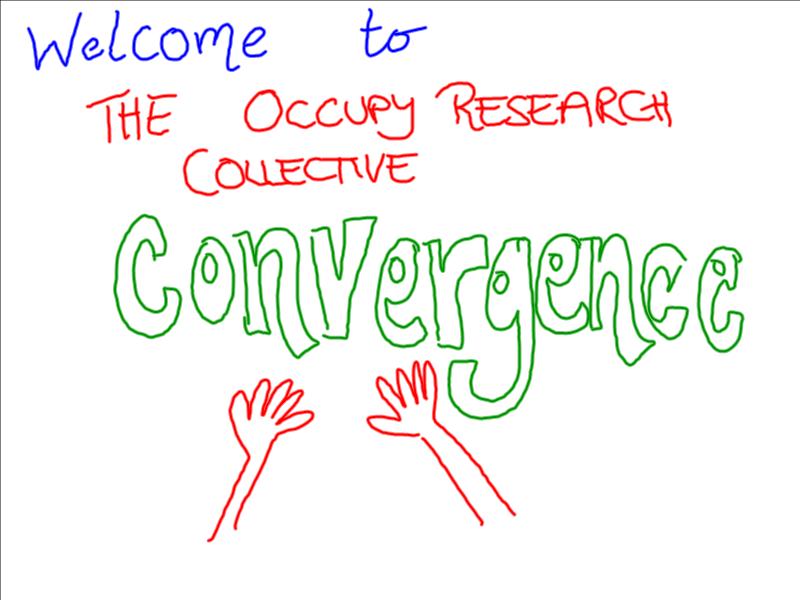

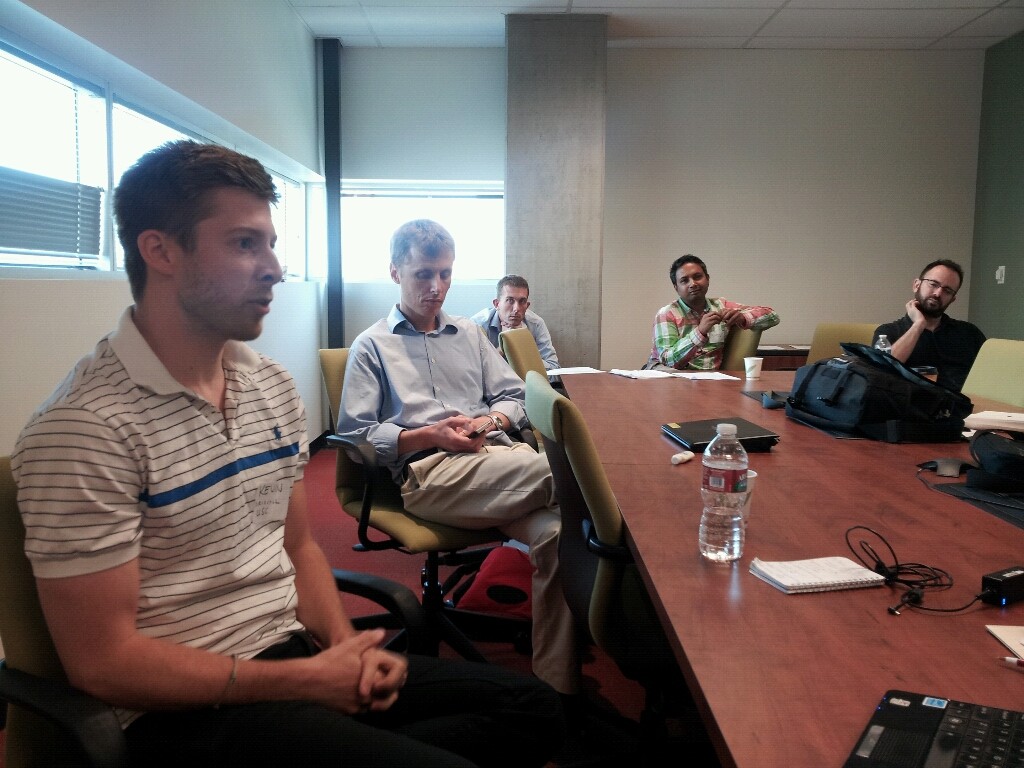










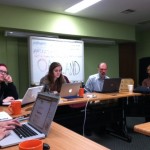
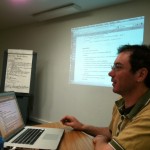
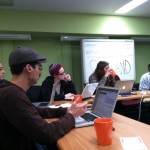
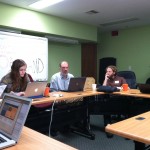
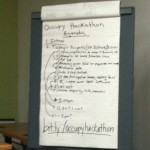

Recent Comments